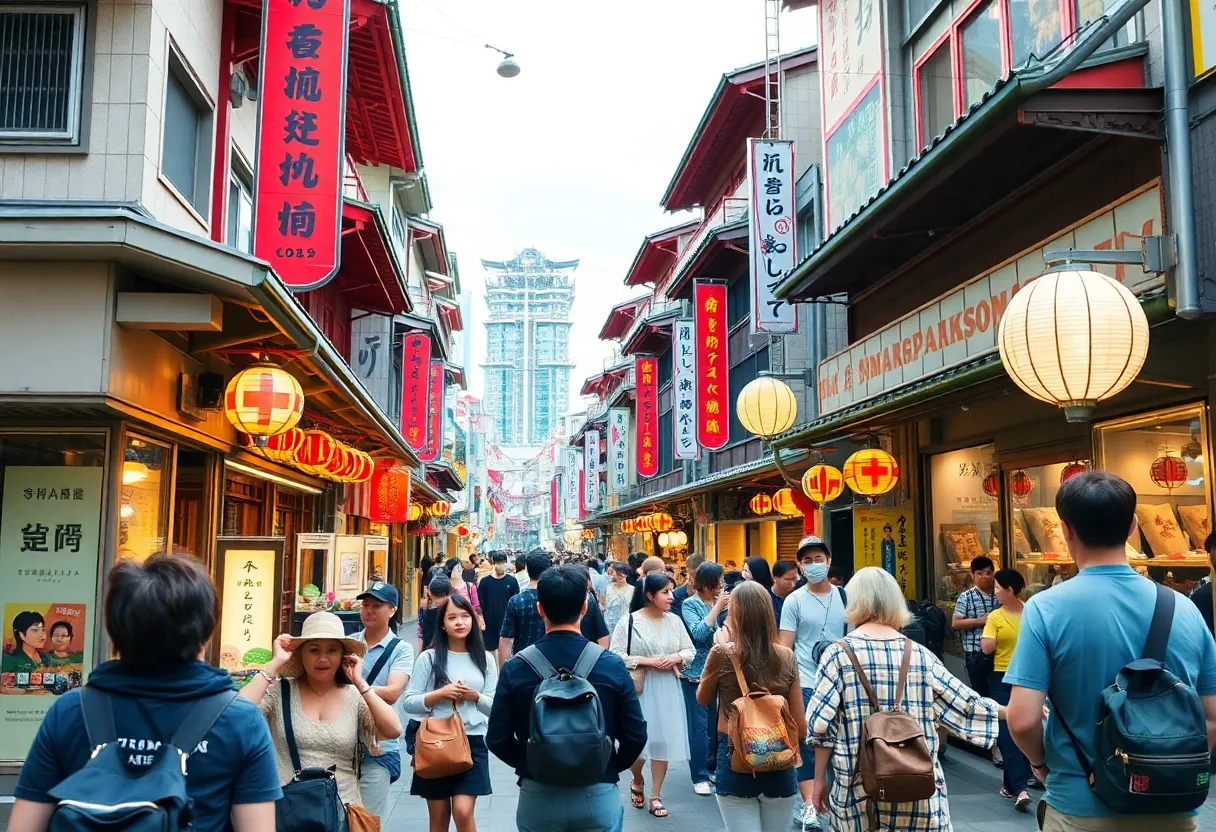

Tourists flock to Japan in 2024, celebrating a record year for tourism.
Japan’s tourism industry experiences an unprecedented surge with 36.8 million international visitors in 2024, far surpassing the previous record of 32 million in 2019. Key factors driving this growth include a weak yen, attracting travelers who contributed approximately $51.78 billion to the economy. However, the influx raises concerns about over-tourism, prompting local governments to implement measures such as increased lodging taxes and stricter regulations to protect cultural sites and ensure a balance between tourism and local community well-being.
2024 has been a landmark year for **_Japan’s tourism industry_** as the nation opened its doors to a whopping **_36.8 million international visitors_**! This incredible figure soared past the previous record set in 2019, which rested at nearly **_32 million arrivals_**. Can you believe it? The excitement buzzing through Japan is palpable as tourism springs back to life!
The key player in this tourism boom is the **_weak yen_**, which recently dipped to a **_40-year low against the US dollar_**. This favorable exchange rate has made Japan all the more appealing to international travelers. With prices feeling much more wallet-friendly, spending from these foreign visitors skyrocketed to an astounding **_8.14 trillion yen_**, translating to roughly **_$51.78 billion_**—and that’s a massive **_53% increase_** from the year before!
This fresh surge of tourism follows a solid year in 2023 when Japan welcomed **_25.07 million visitors_**. However, while the number of travelers brings economic benefits, it has also sparked concerns among local residents about **_over-tourism_**. To manage the increasing foot traffic, the city of **_Kyoto_**, known for its stunning temples and historic streets, announced a plan to raise hotel lodging taxes. Visitors may find themselves shelling out as much as **_10,000 yen_** (around **_$63_**) per night to help tackle these overcrowding issues.
Kyoto isn’t just facing tax hikes; there have been reports of **_tourists harassing geishas_**, which led to a ban on tourist access in select alleyways of the traditional Gion district! This action highlights the need for a little more respect and understanding of local customs, prompting other cities in Japan to consider similar measures to curb unpleasant behaviors and manage crowd complaints.
In an interesting twist, **_Himeji’s Mayor_** suggested charging foreigners a fee six times higher than what locals pay to enter the iconic UNESCO-listed castle in Himeji. It’s clear that cities are being proactive about handling their **_tourism management_**, balancing the influx of visitors with the well-being of local communities.
Despite welcoming millions of international tourists, Japan is still behind countries like **_France, Italy, and Spain_** in per capita tourist arrivals. Looking ahead, the Japanese government has ambitious goals to reach **_60 million annual visitors_** by 2030. The recent figures are promising, with **_February 2025 seeing 3.26 million travelers_**, marking a **_16.9% increase from the same month in 2024_**. Such growth illustrates that the world still has an eager appetite for exploring Japan!
So, who’s traveling to Japan in droves? Well, **_South Korea_** takes the lead as the primary source of visitors, with China close behind. Travelers are indulging in everything Japan has to offer, with spending in 2024 reaching **_¥2.74 trillion on accommodation_**, **_¥2.4 trillion on retail shopping_**, and **_¥1.2 trillion on dining_**. With such impressive expenditures, it’s no wonder businesses are bustling with excitement!
The rise in visitors has led **_UnionPay International_** to expand its payment services in Japan. Since starting its integration in **_2005_**, UnionPay now boasts a vast network that makes it effortless for travelers to make bookings and purchases, even providing tax refunds for qualifying purchases.
However, there are a few bumps in the road to smooth sailing. Japan’s tourism sector is facing a potential staffing gap of about **_536,000 workers_** by 2030. This gap is primarily due to layoffs during the pandemic and has led many workers to seek jobs in other industries, compounding challenges as tourism numbers rise.
So there you have it! Japan is not just welcoming the world with open arms; it’s adjusting, evolving, and preparing to make the most of this tourism boom while keeping its local communities in mind. With the future looking bright, it seems like Japan’s tourism story is just getting started!
News Summary A recent study highlights that female physicians face a significantly higher risk of…
News Summary President Donald Trump is advocating for free passage of American ships through the…
News Summary As the Canadian election approaches on April 28, Prime Minister Mark Carney is…
News Summary President Donald Trump has granted a pardon to Michele Fiore, a former Las…
News Summary Harvard University is experiencing a funding crisis as tensions rise between the institution…